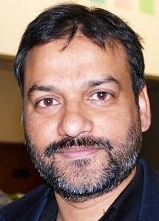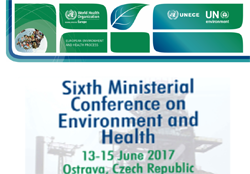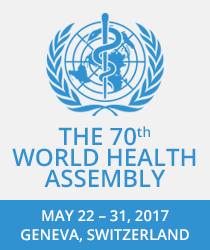Over 200 million girls and women living across 30 countries mainly in Africa as well as Middle-East and Asia share a common misery called genital mutilation / excision also known as female circumcision or Female Genital Mutilation (FGM). An additional 30 million girls are on the verge of submitting themselves into this practice in the coming decade.....The true extent of the abuse against children beginning as young as 7 and 9 years is much more than what we see in the numbers
By Jitendra Panda*
Country Director at Health Poverty Action
Universitat Oberta de Catalunya, Somalia
Zero Tolerance for Female Genital Mutilation
Legalizing Menstrual Leave for Working Women Living with FGM
Women and children demand and deserve more than what our governments and civil societies are currently doing to stop FGM. Over 200 million girls and women living across 30 countries mainly in Africa as well as Middle-East and Asia share a common misery called genital mutilation / excision also known as female circumcision or Female Genital Mutilation (FGM). An additional 30 million girls are on the verge of submitting themselves into this practice in the coming decade. International migration of populations to developed countries such as UK, Germany, France, Italy or USA from conflict and war torn countries such as Somalia, Ethiopia, and South Sudan has caused the migration of FGM practice which has further exacerbated the problem in other countries. A report on unrecorded female genital mutilation (FGM) in Germany, estimated that there are 58,000 women in the country who have been victims of female circumcision. An estimation figure of FGM by the Government of UK shows that more than 180,000 women and girls are living with FGM and a further 65,000 girls under the age of 13 are at risk of FGM.
Over the last three decades national and international efforts to reduce or stop FGM have only resulted into some significant reduction in a few countries. For example, FGM prevalence rates among girls aged 15 to 19 declined by 41 percentage points in Liberia, 31 in Burkina Faso, 30 in Kenya and 27 in Egypt. Sadly however, for many other countries like Somalia, Guinea and Djibouti, FGM practices continue unabated. FGM is banned by law in several countries in Africa and Europe. These numbers do not make many senses unless there are efforts to look into the lives behind these numbers. The true extent of the abuse against children beginning as young as 7 and 9 years is much more than what we see in the numbers.
In particular, the Zero Tolerance campaign castigates the tendency to equate the benefits of FGM to male circumcision, contending that in reality FGM unlocks severe consequences! The United Nations and many developed nations recognize female genital mutilation / cutting (FGM/C) as an illegal practice as well as violation of human rights as it unleashes both short-term and long-term negative effects on both the psychological and physical health of girls and women through its procedures which involve the rudimentary and painful partial or total removal of external female genitalia that always cause other form of injuries to the female organs and critically and terminally impairs a woman’s sexual and reproductive functions including the ability for normal passage of both urine and menstrual blood. Indeed many young girls die during the act of genital mutilation or circumcision due to excessive bleeding and many who are so lucky to survive into womanhood still face death during births because of FGM related complications.
In Somalia where I work, for example, above 90 per cent girls and women aged 15 to 49 are victims of FGM with the multitude of supporters and practitioners claiming that this adherence to the local socio-cultural norms is a healthy source of female chastity, hygiene and breeds family respect. The general believe in many people is that the practice maintains women’s virginity and reduces excessive desire for sex and so circumcised girls are likely to be considered as faithful and improve the chances of marriage and fertility. Just like many protagonist societies, the FGM practice in Somalia enjoys very strong moral, social protection and support from religious leaders, elders, family heads and even extended family/clan lineages. Among the Somali population, these very deeply-rooted cultural and social beliefs existing in the defense of FGM continue to dominate and defeat major efforts by any liberal government, civil society and/or non-governmental advocacy groups to discourage or criminalize the various forms of FGM practices leading to the lack of consent to develop laws and policies to stop FGM.
The controversies surrounding FGM or how to stop it has thus been a never ending struggle for Somali governments and civil societies as well. While the majority of faith-based groups and leaders are in favor of some sort of relaxation in the current practice, many governments’ institutions have made attempts to have it banned (zero tolerance). This so far has largely remained unconvincing for many key leaders and lawmakers. The advocacy for minor forms of FGM (type 1 or 2) expressed by some religious and traditional leaders is nowhere near to the ongoing efforts toward the zero tolerance.
The Zero Tolerance campaign believes that medicalization of FGM will go against the Stop FGM movement as people will find ways to continue this practices at public and private medical institutions. Together with international agencies, civil societies and national governments, every citizen should continue to convince the decision-makers, whether government or religious institutions, to adopt strong political, legal and social measures to discourage FGM practices. I believe that the political leadership, support of religious institutions and coordination among international and the local civil society need to be harnessed to silence this practice and classify FGM as an offense.
As part of this global campaign, one of the many initiatives that we should add to the campaign is to advocate for one day leave in the beginning of monthly menstrual period for all female employees in non-profit, private and public sectors. The leave is given at the beginning of each menstrual cycle as commemoration of their self-reawakening and awareness of the detriments of FGM and their individual commitment as victims to our global Zero Tolerance campaign. It is not only an effort to help relieve their physical and mental pain (dysmenorrhea) in the beginning of monthly menstrual cycle but also to slow our solidarity and support to their fight against FGM.
We should encourage members of all global movement and all well-wishers to join particularly our mothers, women and young sisters in celebrating the beginning of each menstrual cycle for every female as a cherished sign of womanhood. At the same time we commit ourselves to fight against the practice for our future generation free from FGM. We want to envision every FGM-free and painless monthly menstrual period for every woman as special, free from daily chores and with the highest level of personal hygiene and physical rest possible for all. Our hope is that other institutions as well as our society will recognize this effort and work towards achieving a FGM-free society.
We are hopeful that as we stand side by side in this struggle, this day will not only continue to remind us all of the painful experiences women go through each day, but also challenge us to the collective resolve for Zero Tolerance to FGM across the globe.
————————————————–
*Disclaimer: The views and opinions present in this article are my own and do not necessarily reflect the official position of my organization or institutions that I work for or associated with.











